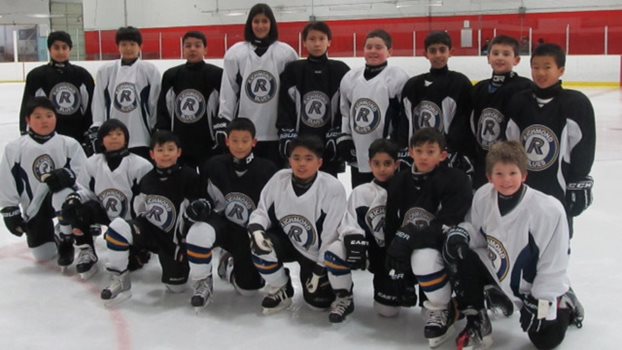
Bridging the language barrier helps hockey in Richmond, B.C.
Hockey is part of the fabric of our national identity. While hockey remains one of the most popular sports for Canadian youth, for some wanting to learn the game, it can be quite a challenge. In Richmond, B.C., language barriers and lack of understanding of the rules have kept many of Vancouver’s Chinese immigrants from playing the game we all love – until now.
The Richmond Minor Hockey Association (RMHA) is helping to change the demographics of hockey in its community and make the sport more accessible to Chinese immigrants in Canada. Taking note of the language barriers and unique needs in their community, the RMHA tried something new this year – having the rules translated into Chinese, with the hopes of growing their membership and getting more people out to play hockey.
“We recognized there was a need to have this information in a language that Chinese Canadians could understand,” said Rob Thorpe, president, RMHA. “There was a great deal of support for the program. We had a large number of people sign up once we started distributing the translated rules within our community. Hockey is growing in the Vancouver area across all age groups; it has gone beyond simply helping young people to get involved in the game.”
A recent recipient of a $25,000 grant from the RBC Play Hockey program, Thorpe said most of the funding went to having the rules translated, as it not only helped young Chinese kids learn about the sport, but also educated their parents to better understand the game. In addition, the grant assisted in covering the cost of ice time and equipment for the kids involved in the RMHA’s Intro to Hockey program. The Intro to Hockey program had about 10 players in 2012, and has grown to 45 in 2013 thanks in part to the translation of the rules and resulting growth in support from the Chinese community.
“The grant gave us the opportunity to purchase equipment, which helped parents who weren’t sure about making the costly investment if their kids didn’t like the sport,” said Thorpe. “It also helped us grow our membership. By offering equipment-sharing as well as translating the rules, it allowed us to sign up more than 100 kids to the association – it was a huge success.”
Another unique hurdle this hockey community faces is more of a bureaucratic nature. Hockey federations have guidelines they need to follow in terms of releasing a player from one jurisdiction to another. This holds true internationally as well. The slow process of being released by the Chinese Hockey Federation has proven challenging for many Richmond families who are new immigrants and have not resided in Canada long enough to be declared full citizens. In fact, the process is a challenge for the RMHA and parents alike, as many kids can’t play hockey until they are released by the federation.
“Parents are growing impatient and it’s hard to explain that while we offer a program that can teach you to skate and learn the game, you aren’t able to play in the league until paperwork from your home country is completed. It’s a real issue for our Chinese and Russian families but we hope to resolve it,” noted Thorpe. “Of the 100 kids we signed up after the translated rules were distributed in the community, we are running at about a 15 per cent success rate of enrolment because of the slow paperwork process.”
RBC Play Hockey is one of the largest corporately-funded hockey programs that supports grassroots hockey in communities across Canada. To date, RBC has provided more than $1.5 million in grants to over 120 hockey programs – ranging from learn-to-skate, ball hockey and equipment sharing programs to improving access to ice, hockey clinic initiatives and lowering registration costs. For more information, visit rbcplayhockey.com , follow us on Twitter at @RBCPlayHockey or on Facebook at www.facebook.com/rbcplayhockey.